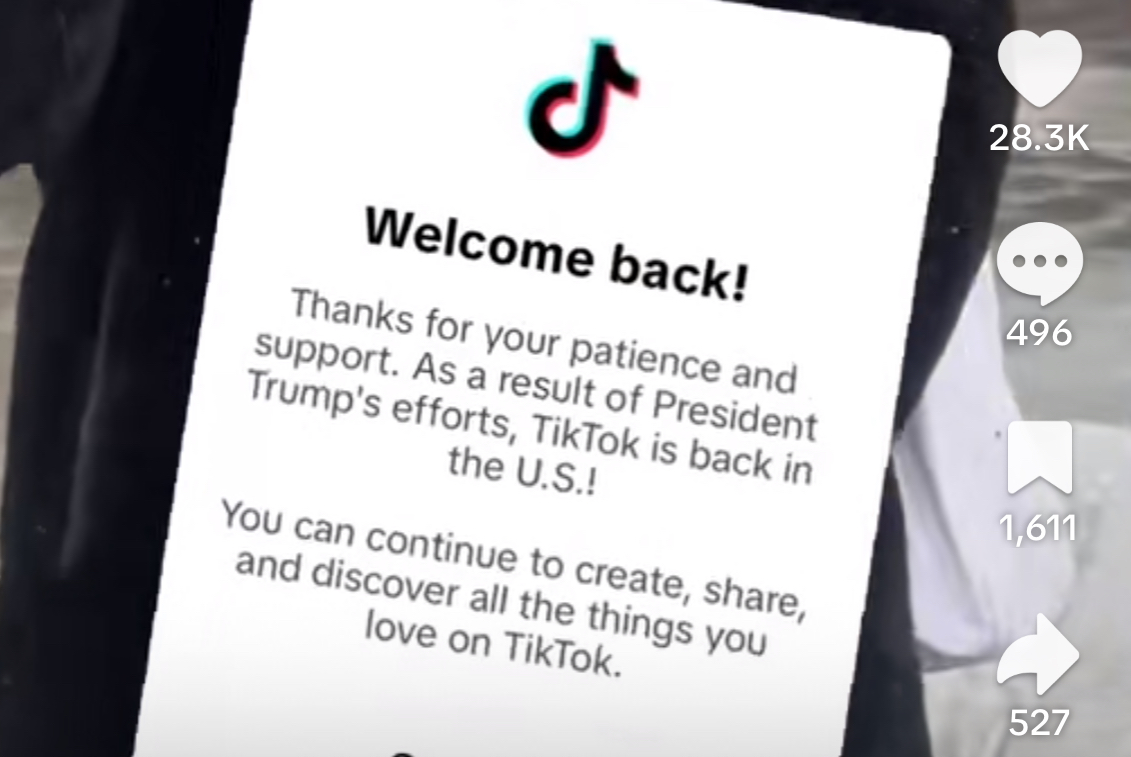On Jan. 18, the Supreme Court surprised many Americans by unanimously voting to ban TikTok, unless the Chinese parent company sold the U.S. portion of the app to another company. This decision did not go to plan as a few hours after the initial ban, President Trump issued an executive order to delay the app’s ban for 75 days.
Since September 2016, the social media app has quickly risen to the top, as teens’ most used and valuable app. What started as a new app for users to create dancing, lip sync, and comedy short videos, now holds the power of creativity and self-expression.
The U.S. Department of Justice claims the company that owns Tiktok, ByteDance, uses a Chinese internet technology that has the ability to see all American user’s data and information and share it with the Chinese government. The department claims this allows the Chinese government to manipulate any given information against American citizens.
Shou Zi Chew, TikTok’s Singaporean CEO, has continued the fight for the app to stay. During the previous attempt to demise TikTok in 2023, Chew argued that the First Amendment protected the app. “We are confident, and we will keep fighting for your rights in the courts. The facts and the Constitution are on our side, and we expect to prevail,” Chew said.
Many users believe that TikTok isn’t worse than any other social media app. “ I can understand why people feel the need to ban it, but at the same time, I don’t understand how TikTok is worse than any other social media site that also exists,” junior Liberty Peachy said.
Government officials and executives for the app have shed light on the ban’s effort to limit American citizens’ constitutional right to freedom of speech. The ban directly goes against the First Amendment’s core concepts of access to free speech. Whether it be a dance video, or a video to spark political or social awareness, TikTok is a major contributor to youths’ access to media and information. Without TikTok, many American youth will now be limited in their access to free speech and creativity.
While undeniably there are many downsides to social media, banning apps entirely leaves thousands of small businesses, influencers, and brands penniless. After several years of being in the limelight, TikTok has a platform for creators to raise awareness on critical issues like social justice, mental health, and political issues. The app has been designed so that all users have the ability to be in direct communication and influence with their audience, bringing in revenue for many users. Losing this tool will not only cause millions of Americans to lose their direct source of income but will cause small businesses to take financial blows. TikTok has allowed even the smallest of upcoming businesses to get noticed in the fastest amount of time. The ban is expected to disrupt the $250 billion creator economy. TikTok estimates that U.S. small businesses could lose over $1.3 billion in revenue in the first month of the ban.
“I am going to delete TikTok and find new hobbies and watch YouTube instead when it eventually gets banned,” junior Jordyn Wilson said.
Whether TikTok faces its demise in the next couple of months or reigns supreme for another year; the ban will continue to be on the back burner for the next 75 days. The nation collectively holds its breath to see if our right to free speech is stripped away.








